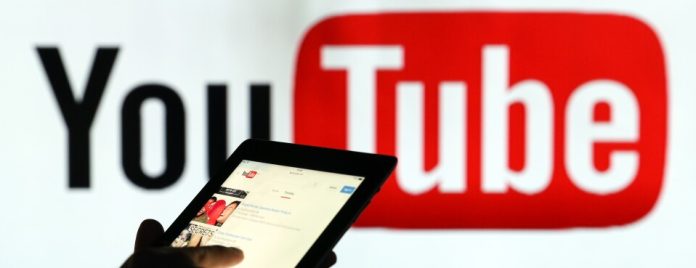By Carrie Goldberg
Victims’ rights attorney Carrie Goldberg analyzes how a pending US Supreme Case could upend Section 230 of Communications Decency Act, which protects internet platforms from lawsuits over content posted by their users.
In November 2015, Nohemi Gonzalez was one of 17,000 Americans studying abroad in France. A first-generation Mexican American from California, the 23-year-old was living abroad for the first time. On that Friday night, her last, Gonzalez was out on the town with friends, minutes into a meal at a lively Paris bistro.
Neither she nor 128 others who would die in that night’s coordinated terrorist attack knew that since July of that year, YouTube had been recommending Islamic State group videos inciting violence and recruiting followers to “bring slaughter to France” and “fill the streets of Paris with dead bodies.”
In 2023, the US Supreme Court will hear the case brought by Gonzalez’s parents against Google, the parent company of YouTube. Relying on the Antiterrorism Act, plaintiffs intend to prove that YouTube provided material support to ISIS resulting in Gonzalez’s death.
Although no different from prior ATA lawsuits brought against banks, airlines, charities, and governments for the critical roles they played in incidents of terrorism, Google convinced lower courts that even if it did aid and abet terrorism, it’s immune from liability because it’s an internet company.
A narrow law created in 1996 intended to shield burgeoning internet service providers from defamation lawsuits—Section 230 of the Communications Decency Act—has been big tech’s get-out-of-court-free card.
Gonzalez’s case encapsulates the hubris of Silicon Valley. For nearly three decades, the tech industry has expertly dodged responsibility for harms their platforms have caused. Unlike any other industry, they breach human rights with no threat of accountability.
In recent years, bad actors have used the largest social media companies to influence the progression of many global harms—for example, the genocide in Myanmar, election corruption, eating disorders, and online child sexual exploitation.
Yet not a single social media, search engine, or online retailer has ever stood trial before our courts for injuries they’ve caused and frequently profited from.
In our common law system, precedent often builds off precedent. Courts’ early application of Section 230 happened when platforms were far less capable of doing harm, causing the law to morph into something unrecognizable today.
Consequently, even the most seemingly meritorious cases where people are catastrophically injured or killed have been thrown out of court. Without the pressure of litigation, the great equalizer of our civil court system, corporations have no incentive to fix safety breaches in their products.
By plucking Gonzalez’s case out as the first-ever Section 230 case to be heard, the Supreme Court is signaling it’s time for the tech industry to pay the piper. If we learned anything from last year’s Supreme Court rulings, the current group of judges selects cases to course-correct areas of jurisprudence that, by their standards, are morally objectionable.
In recent years, Justice Clarence Thomas has not been bashful about his disdain for use of Section 230. As the most vocal—if not passionate—justice on the issue of tech liability, he will likely drive the decision.
In a 2021 discussion denying cert in Malwarebytes v. Enigma, Thomas made a laundry list of cases that he felt were wrongly dismissed by lower court judges because of Section 230.
Illustrating his point, he lamented a case where Facebook (now part of parent company Meta) similarly recommended Hamas content with regard to the conflict with Israel; a product liability case where the platform lacked basic safety features to stop a known malicious user from sending over a thousand men to sexually assault a young man (disclosure: I represented plaintiff Matthew Herrick in this case against Grindr); and a case where Snap added a feature that encouraged reckless driving, killing three boys.
VIDEO: Is Section 230, tech’s favorite law, in trouble?
It’s hard to predict exactly what the Supreme Court will do—it may acknowledge Section 230’s exception to federal crimes and clarify that civil causes of action derived from federal crimes are not preempted by Section 230.
It may, as I hope, take a stance that the plaintiff’s ATA claims do not treat YouTube as a publisher, and that targeted and unique recommendation of material to select individuals is not a traditional editorial function.
It could say that Section 230 was never intended to be used as grounds for pre-discovery dismissal but instead should be an affirmative defense that tech companies must plead and prove.
As the amicus briefs start pouring in, we’re bound to see the predictable fearmongering that reversing and remanding the case will destroy the internet. However, we must think sensibly—the court is not being asked to determine Google’s actual liability. The only question is whether Google could be liable.
A win for plaintiffs means that Gonzalez’s family gets to advance beyond this early stage into discovery and then the challenging process of proving all the elements of their case.
A loss means a major neutering of the judiciary’s power over the uncontrollable tech industry, and a leap toward ensuring that tech companies truly are more powerful than any branch of government.
This article does not necessarily reflect the opinion of Bloomberg Industry Group, Inc., the publisher of Bloomberg Law and Bloomberg Tax, or its owners.
Write for Us: Author Guidelines
Carrie Goldberg owns C.A. Goldberg, a Brooklyn, N.Y.-based law firm that sues for catastrophic online harms. She is on the plaintiffs steering committee in Re: Social Media Addiction/Personal Injury Products Liability Litigation.
To read more articles log in.
Learn more about a Bloomberg Law subscription.






